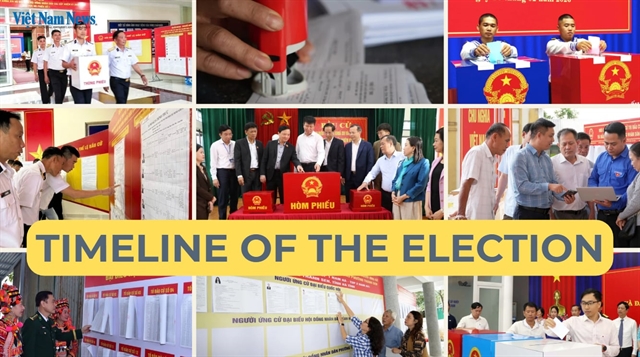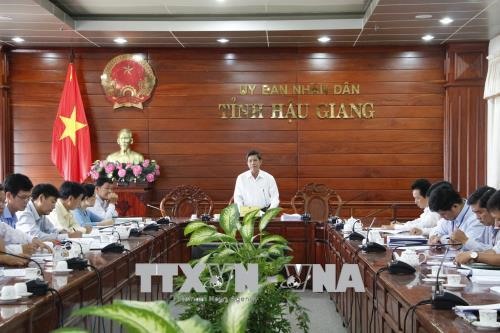 Society
Society

The Cửu Long (Mekong) Delta province of Hậu Giang plans to build a safe water-supply network serving 70 per cent of residents in urban areas, with an average of 70 litres per person per day by 2020.
 |
| Hậu Giang Province hopes to develop a clean water supply system for rural areas by 2020. — VNA/VNS Photo Hồng Thái |
HẬU GIANG — The Cửu Long (Mekong) Delta province of Hậu Giang plans to build a safe water-supply network serving 70 per cent of residents in urban areas, with an average of 70 litres per person per day by 2020.
The province’s People’s Committee approved the project for rural areas at a meeting held on Monday. The aim is to provide clean water to all residents in urban areas by 2030.
The project will be divided into two phases with total estimated capital of about VNĐ1.3 trillion (US$57 million).
Capital sources include state budget funds, ODA (Official Development Assistance), and other loan capital.
Under the draft plan, water supply and drainage networks include three options: using water from water supply plans in Mekong Delta; buying water from the Aqua One Drinking Water Factory; and improving existing water plants and building extra reservoirs.
Consulting engineer Nguyễn Quốc Bình said the upgrade of plants and more reservoirs could save a lot of money, compared to other more costly options which will take a long time to implement.
Đồng Văn Thanh, deputy chairman of the province’s People’s Committee, said the project would require about 85.5ha of land to build reservoirs and good management of surface water.
Planning for water supply and use in the province is part of the national target programme on clean water and environment in rural areas and the programme on building new-style rural areas, according to Thanh.
New medium-sized and large water supply systems for residential areas, schools, medical stations and markets are needed, especially in areas with water scarcity and poor quality of water.
Advanced technology is needed to treat brackish water in the case of saltwater intrusion, such as Reverse Osmosis (RO) technology for treatment.
"The project needs to be adjusted soon to submit to the Ministry of Construction for approval," he added.
Nguyễn Hoàng Anh, deputy director of the province’s Department of Natural Resources and Environment, said the province had nearly 200 water supply stations operating in rural areas.
He said this project would contribute to exploiting water resources more efficiently and meet the need for clean water.
By 2016, nearly 35,000 households living in rural areas had access to clean water, accounting for 24 per cent of total rural households in the province.
The province has more than 46,000 wells supplying about 90,000cu.m of water a day. — VNS